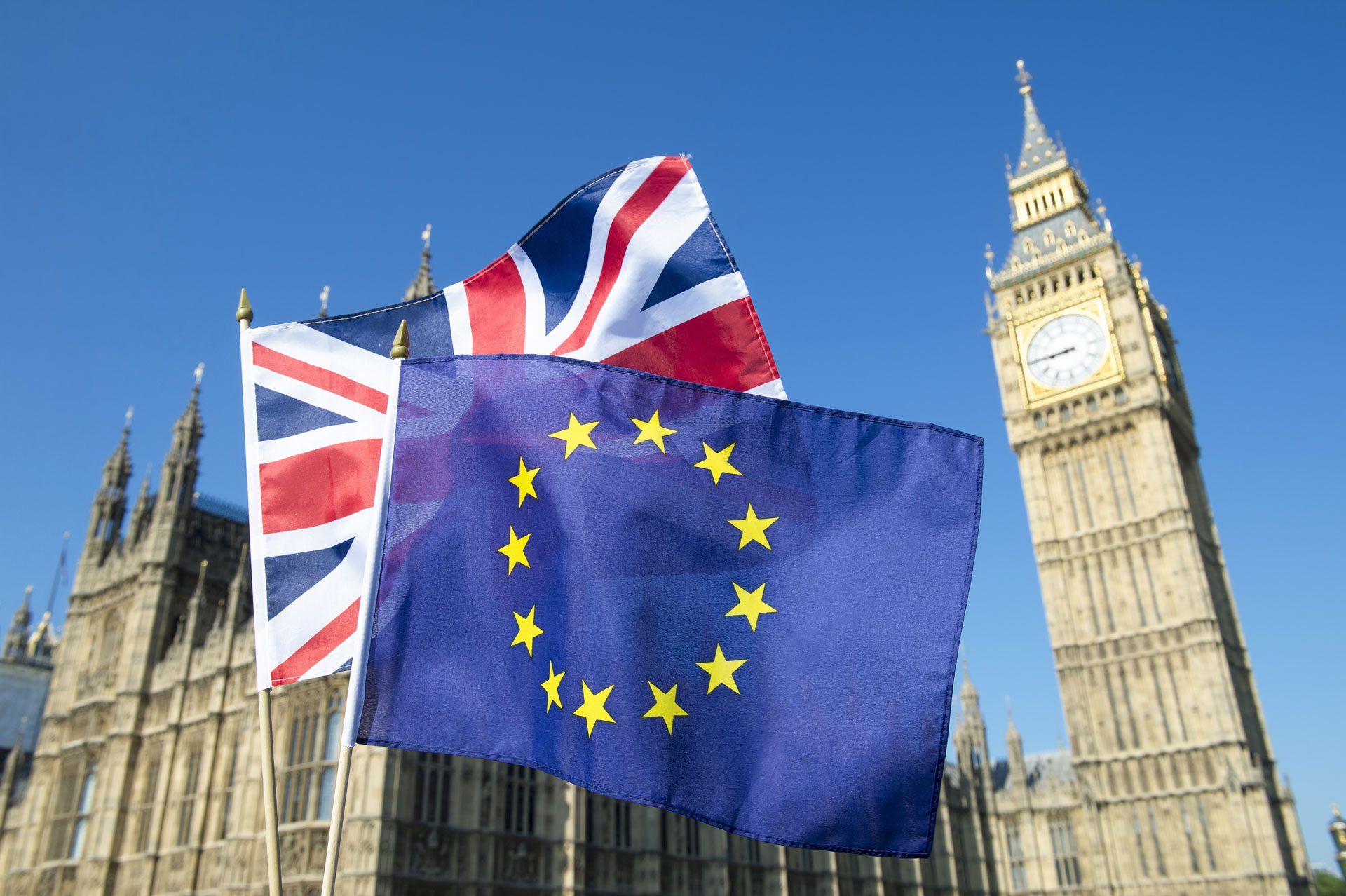Brexit and Everything After

For months, residents of the United Kingdom have debated whether Britain should remain a member of the European Union or leave the 28-nation bloc that was formed just after World War II. On June 23, voters in Britain decided to leave. Furman political science professor Brent Nelsen, who joined the faculty in 1990, teaches courses on Europe and the European Union and is co-author of “Religion and the Struggle for European Union: Confessional Culture and the Limits of Integration.” In a Q & A, Dr. Nelsen talks about the Brexit vote, Britain’s place in the world and the future of the European project.
Q: Britain voted last week to leave the European Union. Observers have suggested it would be a disaster if this were to happen. Do you agree?

Dr. Brent Nelsen teaches courses at Furman on Europe and the European Union.
Nelsen: “Disaster” might be too strong a term, but I certainly think it has and will continue to disrupt a Europe already struggling with migration, terrorism, Russian belligerence and poor economic performance. Having to untangle the UK from its deep ties to an integrated EU will take a lot of time and energy that could be spent on other problems.
Q: Were you surprised at the result?
Nelsen: Yes! I’ve been in Ljubljana, Slovenia for a conference on European issues. I went to bed like everyone else expecting to wake up to a close but clear vote to remain in the EU. When I checked my phone for headlines in the morning, I first saw several texts from students I had taken to Brussels last fall on Furman’s internship program. I could tell immediately that “Leave” had won. I think I can honestly say it was the most startling political development I had ever experienced in 50 years of watching European politics.
Q: What was the case for leaving the EU, and why was there even a referendum on Britain’s membership in the organization?
Nelsen: Prime Minister David Cameron called the referendum to placate the Euro-skeptical right wing in his own party. He was concerned about losing that wing to the Euro-skeptical upstart party known as UKIP, which is led by a charismatic politician named Nigel Farage, who bears a striking political resemblance to Donald Trump. He was also concerned that the issue had grown so contentious in the UK that it was time to settle the question once and for all by consulting the people. This had been done once before in 1975 when British citizens voted overwhelmingly for continued membership. Britain joined the European Community—as it was known then—in 1973 by vote of Parliament.
All that being said, many commentators believe Cameron did not have to call this vote. No great issue in European integration confronted the country. The UK is not a member of the Eurozone so none of the issues involving the Greeks and the stability of the euro involved the British. The UK is also not a member of Schengen, so it doesn’t participate in migration policy in the EU. Britain is doing much better than the rest of the EU economically. So why call the vote? It seems Cameron did it for domestic, mainly internal party, reasons. And it cost him his job.
As for the case for leaving the EU, it comes down to sovereignty. Euro-skeptics believe too many important decisions—and far too many regulations—are now made by the EU institutions and Brussels bureaucrats rather than the British Parliament. Many also argued that Britain could not control its borders without leaving the European single market, which guarantees freedom of movement for European citizens. British “Leavers” simply wanted control of their country back.
Q: The EU nations have said Britain can expect a tough and unforgiving response if it leaves? What might those responses be?
Nelsen: First, it looks like the EU is unwilling to give Britain the time it wants to take before beginning negotiations. A new prime minister is not likely to be in place before October or November. Cameron would like the negotiations to begin after the new leader takes office. EU leaders, however, have stated clearly that they want as clean a break as possible as soon as possible to minimize political and economic uncertainty. Legally, the withdrawing country is required to invoke Article 50 of the Lisbon Treaty (on withdrawal) before negotiations can begin. So technically the ball is in Britain’s court. But like some fraught marriages heading for divorce, the jilted party just wants the other partner to go away.
Second, Britain remains a European country, so it will have to decide just what kind of relationship it wants with the EU. It will probably want to remain in the single market, but limit immigration and insist on its right to reject any EU regulations it deems unnecessary. EU leaders are not likely to agree to such a sweet deal and may insist that the UK fend for itself, at least for a while. In the end, Britain and the EU may agree to some kind of free trade area, but that is not guaranteed. Some have suggested that Britain should forget Europe and apply for membership in NAFTA. To my mind, that is not a bad idea.
Finally, the technical details of leaving the EU are mind-numbing. Most of the burden will land on the British. They will have to decide which of the astronomical number of EU regulations they will keep and which ones will go. Parliament will be amazingly busy in the next few years as they completely overhaul the nation’s regulatory regime.
Q: Some polls suggest there is a growing dissatisfaction with the EU and some other European countries could leave as well? Is that a real possibility?
Nelsen: Absolutely! As [Furman political science professor] Jim Guth and I have been arguing for a long time in our written work, the Protestant countries of the north are the most awkward partners in the EU. They always resist proposals from their continental partners for more sacrifices of sovereignty to solve Europe-wide problems. Already we see prominent politicians, mostly from the right, calling for referendums on membership in the Netherlands, Denmark and Sweden. I think these countries will each have referendums in the future.
Q: You have said that regardless of whether Britain decided to leave or stay, the EU has to change its fundamental purpose and institutional structure. Can you elaborate?
Nelsen: The founders of the EU had a marvelous vision of ending the scourge of nationalism and uniting the nations of Europe in an organization that went beyond the nation state to something new and different. Their efforts made war on the European continent unthinkable and connected the regions of Europe in a large and dynamic economic area that brought prosperity to Europeans like they had never seen before. But the EU never overcame deep national identities; Europeans were not ready to exchange their national identities for a new European one. Without a “European people” it is impossible to establish a set of institutions that are truly democratic. Thus, in my view, the EU must be much more willing to accommodate national identities and to preserve national sovereignty. The EU must become an international organization of sovereign states that cooperate in deep ways but do not attempt to form a federation. I would like to see an EU that Britain would feel comfortable joining again.
Q: Ultimately, what does the Brexit vote mean for the future of Britain, the EU and the rest of the world?
Nelsen: I cannot see into the future. But I do think this development weakens Britain, Europe and, in fact, the whole West. Britain has not solved its deep divisions. The vote has widened the gap between England, Scotland and Northern Ireland. Wales narrowly voted to leave, but the other areas voted to remain. The UK is likely to break up in the next five years. Scotland will become independent and join the EU; Northern Ireland may vote to join Ireland. England will be a smaller, weaker, less influential country than the old United Kingdom.
An EU without the UK will not be as oriented toward the United States and will certainly not be as tough on Vladimir Putin. It will probably become less market oriented and more focused on the problems of an aging population and an unbalanced economy.
Finally, the victory of the Leave campaign in Britain strengthens the populist forces that are sweeping the West. The right-wing parties in Europe and Donald Trump in the U.S. are tapping into a deep political vein filled with people who have grave doubts or outright disdain for open societies. They distrust globalization, with its open trade and open borders. They want to preserve their unique ways of life and would prefer not to see too many immigrants in their neighborhoods.
These forces are driving a wedge between educated, well-traveled, cosmopolitan citizens and less educated, poorer citizens who simply haven’t had the resources to take advantage of a more open world—or who do not want to participate in it. These tensions will be exacerbated in the future. The British vote is just the start of a conflict that I fear will challenge Western liberalism and its historic commitment to democracy and capitalism.